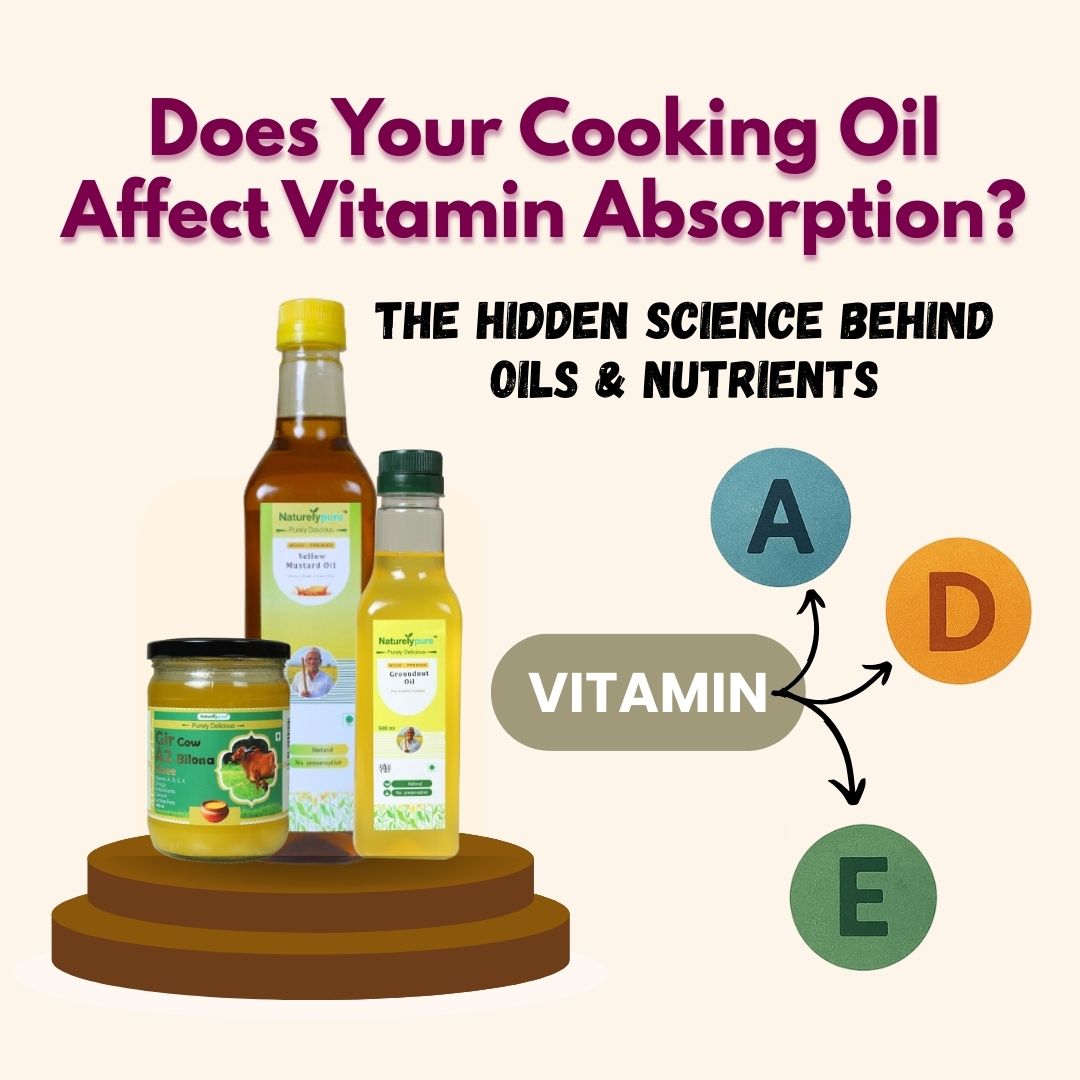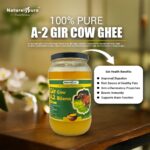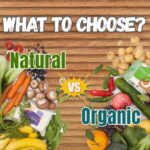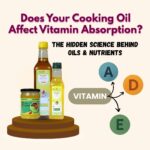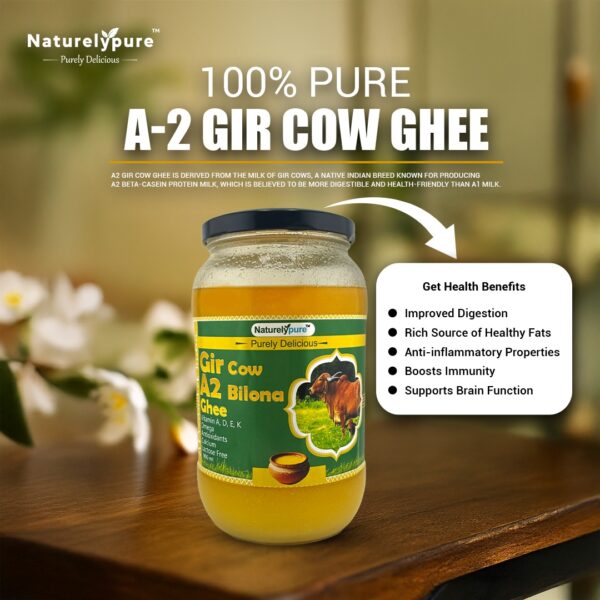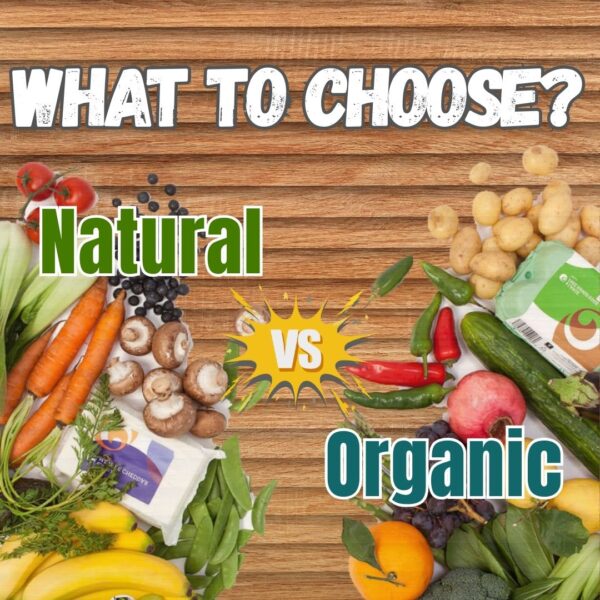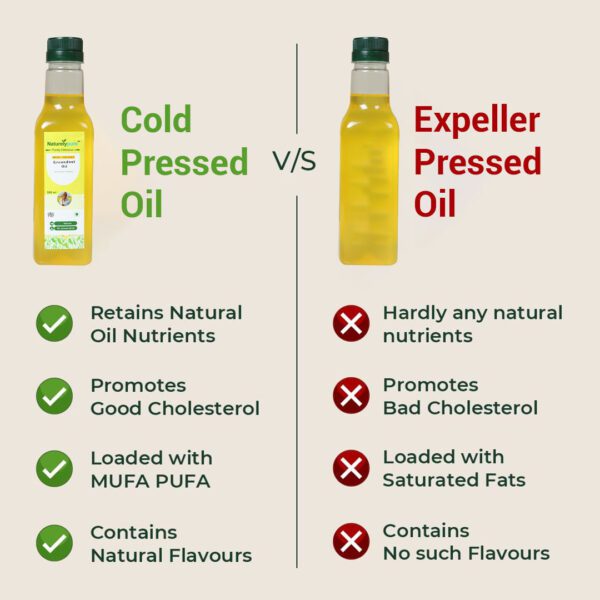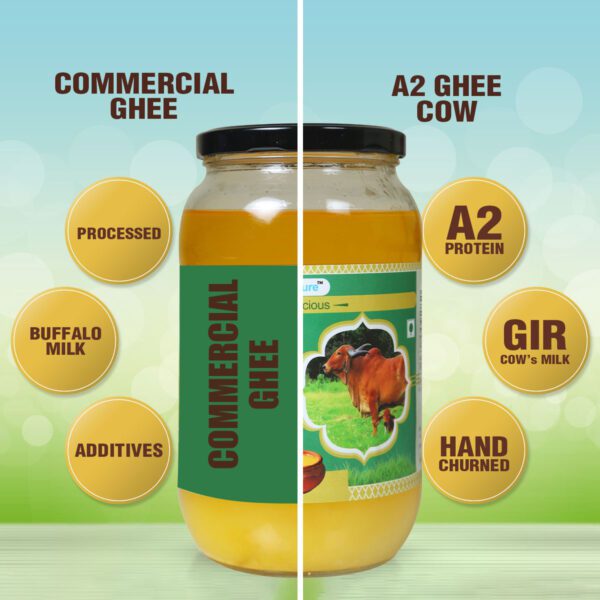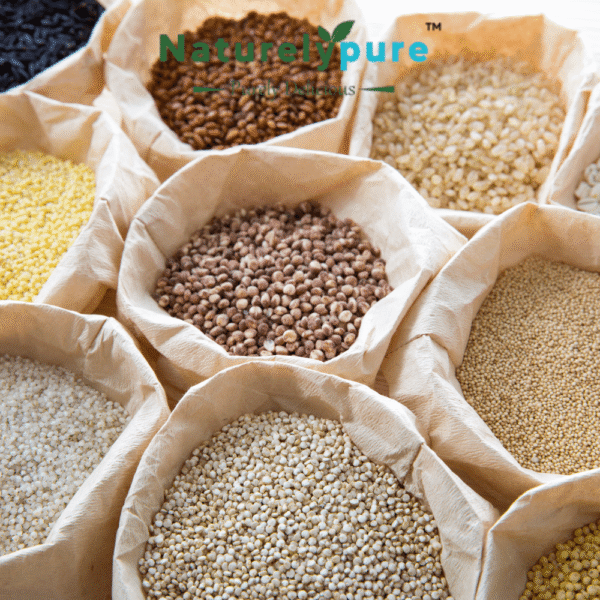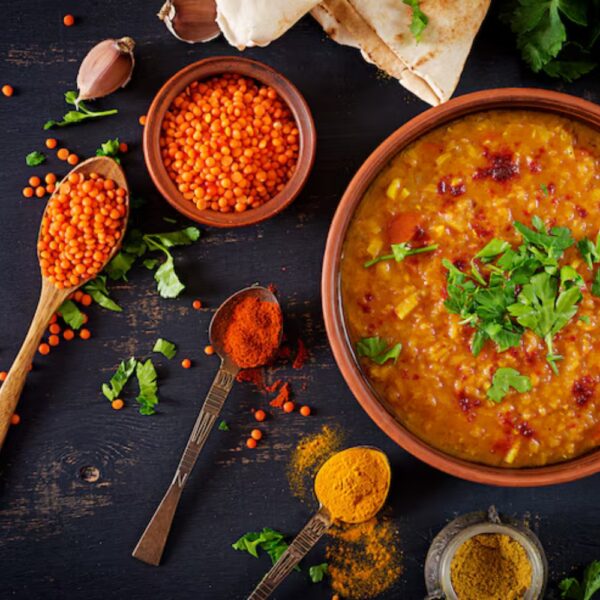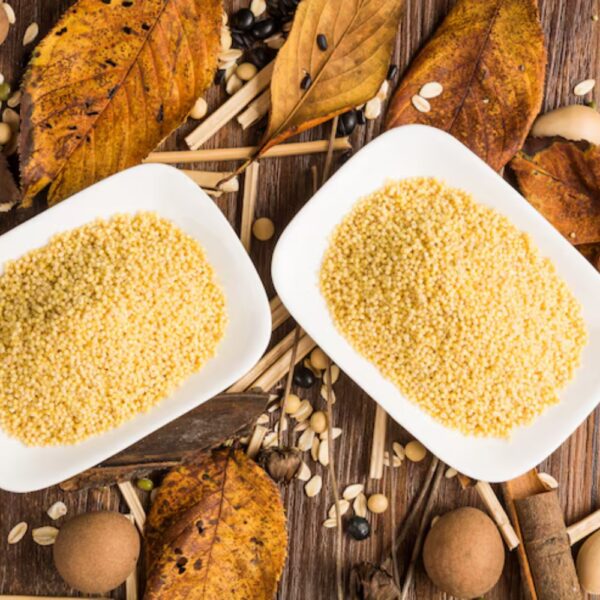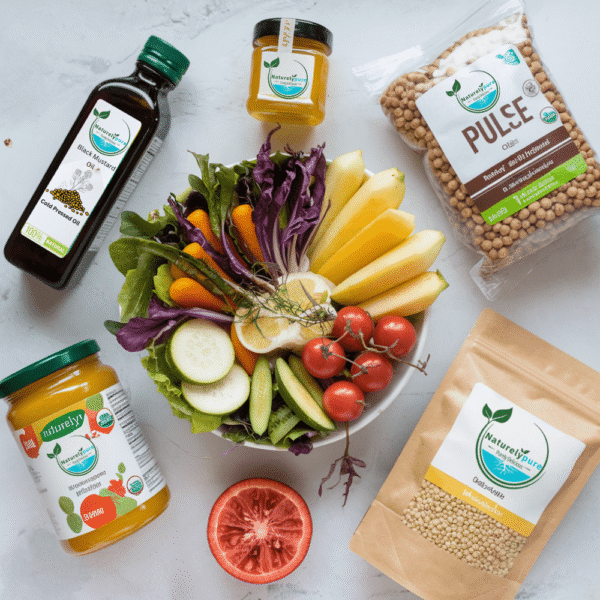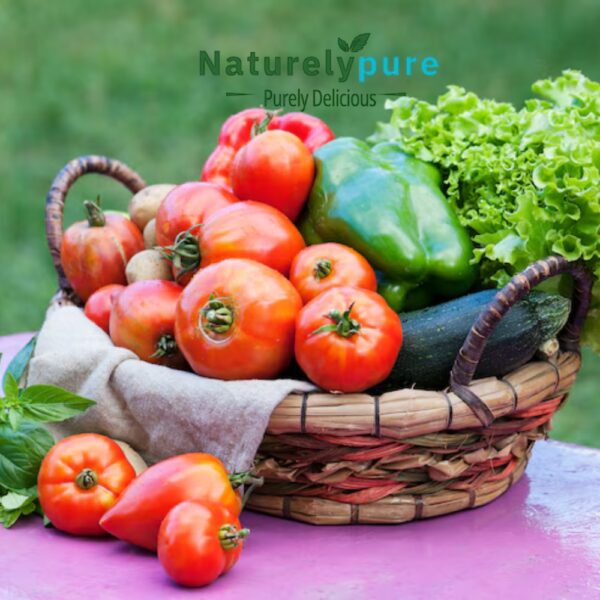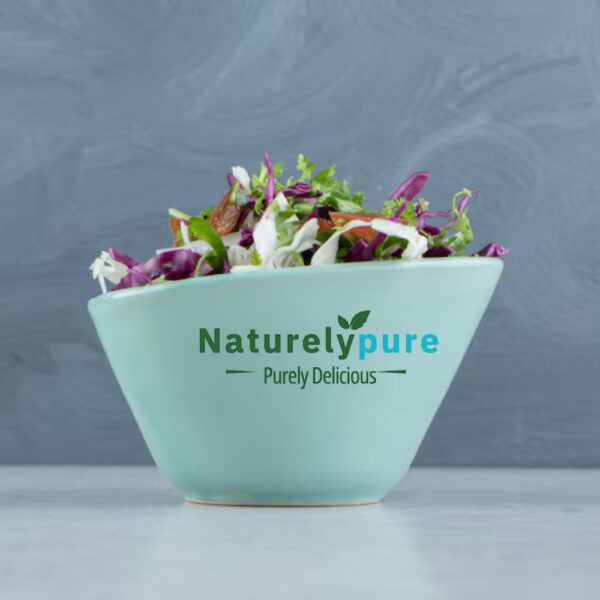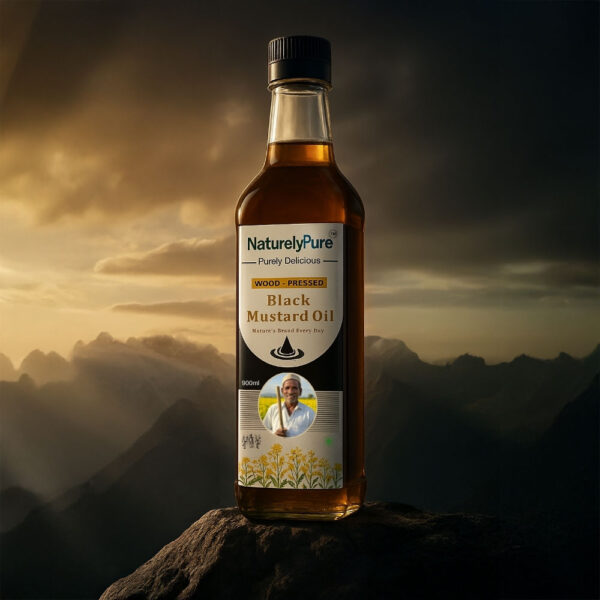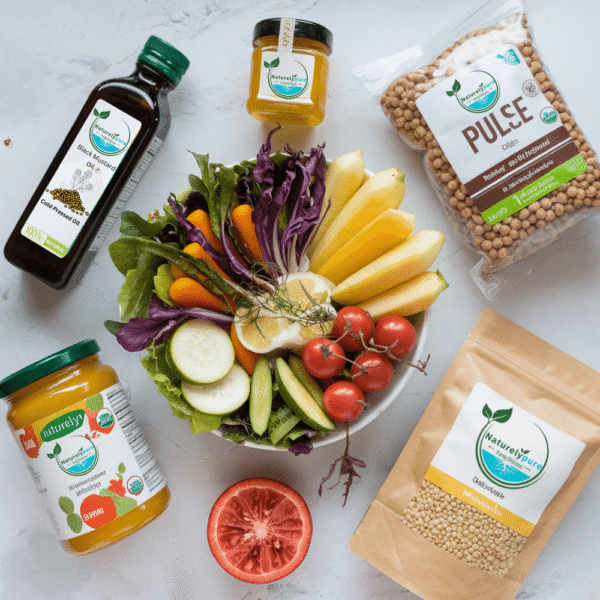Does Your Cooking Oil Affect Vitamin Absorption? The Hidden Science Behind Oils & Nutrients
Cooking Oil affect Vitamin Absorption: More Than Just Cooking Mediums
When we talk about healthy eating, most of us think about what we eat—vegetables, fruits, grains, or superfoods. But here’s the catch: it’s not just what you eat, it’s also how your body absorbs the nutrients. And surprisingly, one silent player decides this behind the scenes—your cooking oil. At Naturely Pure, we often say: ‘Your oil doesn’t just flavor your food—it unlocks its nutrition.’
Hidden Role of Oils in Plant Compound Absorption
It’s not just vitamins that rely on oils. Several powerful plant-based nutrients are “fat-loving,” meaning your body can’t fully use them without the right oil.
- Curcumin (from turmeric) → absorbs 2000% better with healthy fats.
- Lycopene (from tomatoes) → significantly higher absorption when cooked with oils like sesame or olive oil.
- Beta-carotene (from carrots, pumpkin, spinach) → easily converted to Vitamin A only in the presence of fat.
- Polyphenols (from spices & herbs) → need lipids for bioavailability.
This is why traditional Indian cooking always includes a tadka (tempering with oil or ghee). It’s not just for flavor—it unlocks the medicinal power of spices.
The Science: What are Fat-Soluble vs Water-Soluble Vitamins?
Not all vitamins are created equal. Some dissolve in water, some in fat.
– Water-soluble vitamins: Vitamin C, B-complex → dissolve in water and are absorbed quickly, but not stored in the body.
– Fat-soluble vitamins: Vitamins A, D, E, K → need fat/oil to be absorbed properly.
Without the right oil, even if you eat spinach (Vitamin K), carrots (Vitamin A), or turmeric (curcumin), your body may miss out on the benefits. We do need to consider the fact that Cooking Oil Affect Vitamin Absorption.
Cold Pressed Oils vs Refined Oils: Why It Matters for Absorption
Here’s where the type of oil plays a huge role:
Cold Pressed Oils: Pressed at low temp, nutrients retained. Rich in antioxidants and natural compounds. Helps maximize fat-soluble vitamin uptake.
Refined Oils: High-heat & chemical solvents used. Nutrients stripped. Provide fat but lack nutrient synergy.
Foods + Cooking Oil Affect Vitamin Absorption & Nutrient Absorption
Some powerful and lesser-known food-oil interactions:
1. Turmeric + Cold Pressed Coconut Oil → Better Curcumin Absorption.
2. Carrots + Sesame Oil → Vitamin A Activation.
3. Leafy Greens + Mustard Oil → Vitamin K Utilization.
4. Sunlight + A2 Gir Cow Ghee → Vitamin D Synergy.
Why Refined Oils Fail at This Game
Refined oils are stripped during processing. While they still provide fat, they:
– Lack phytochemicals that aid vitamin absorption.
– May contain residual chemicals that burden the liver.
– Oxidize faster, destroying delicate vitamins like E.
How Much Oil Do You Actually Need for Vitamin Absorption?
One common question is: “Do I need a lot of oil for vitamin absorption?”
The answer: No. Even a teaspoon of healthy fat with your meal is enough to boost nutrient uptake.
- Salads with lemon juice only → low Vitamin A absorption.
- Salads with sesame or mustard oil drizzle → significantly higher carotenoid absorption.
- Dal with ghee tadka → improves absorption of turmeric curcumin.
It’s about quality, not quantity—switching to cold pressed oils ensures maximum benefit even in small amounts.
Now the question that arises regarding how Cooking Oil affect Vitamin Absorption:
Which cooking oil helps in better vitamin absorption?
Cold pressed oils such as coconut, sesame, and mustard oils are best for vitamin absorption because they retain natural antioxidants and healthy fats, which help the body utilize fat-soluble vitamins like A, D, E, and K.
Traditional Wisdom Meets Modern Science
Ayurveda has long paired foods with oils:
– Haldi doodh with ghee → better curcumin absorption.
– Sarson ka saag with mustard oil tadka → Vitamin K utilization.
– Coconut oil pulling → fat-soluble vitamin delivery through oral mucosa.
What This Means for You as a Consumer
When buying oils:
- Look for cold pressed or wood-pressed oils.
- Rotate oils seasonally: Coconut (summer), Mustard (winter), Sesame (all-year balance).
- Use A2 Gir Cow Ghee for fat-soluble vitamin synergy.
If you’re already choosing Naturely Pure oils, you’re ensuring that every spoonful of spinach, turmeric, or carrot delivers its promised nutrition.
Your Oil is the Hidden Key to Nutrition
Next time you add oil to your food, remember – Cooking Oil Affect Vitamin Absorption. You’re not just cooking, you’re deciding how much of your food’s vitamins your body will actually get.
Cold pressed oils and A2 Gir Cow Ghee aren’t just healthier – they’re nutrient unlockers. That’s why at Naturely Pure, we stay committed to offering oils in their purest, most nutrient-preserving form.
Because wellness doesn’t just start on your plate – it starts with what carries those nutrients into your body.
FAQs
Q1: Which cooking oil is best for vitamin absorption?
Cold pressed oils like coconut, sesame, and mustard oil are best for vitamin absorption because they retain natural antioxidants and healthy fats that help the body use vitamins A, D, E, and K effectively.
Q2: Does cooking oil affect nutrient absorption?
Yes. The type of cooking oil you use directly impacts how well your body absorbs fat-soluble vitamins and plant compounds like curcumin and carotenoids.
Q3: Why are cold pressed oils better than refined oils for vitamins?
Cold pressed oils are extracted without heat, so they preserve nutrients and bioactive compounds that enhance vitamin absorption, while refined oils lose most of these benefits.
Q4: Which vitamins need oil for better absorption?
Vitamins A, D, E, and K are fat-soluble, meaning they require healthy fats or oils like coconut oil, sesame oil, mustard oil, or ghee for proper absorption.
Q5: Is ghee good for vitamin absorption?
Yes. A2 Gir Cow Ghee is rich in healthy fats that help absorb vitamins A and D, support digestion, and improve nutrient availability.
Q6: Can refined oil help in vitamin absorption?
Refined oil provides fat, so it supports vitamin absorption to a limited extent, but it lacks antioxidants and natural compounds, making it less effective than cold pressed oils.
Q7: What is the best oil for children’s vitamin absorption?
A2 ghee and cold pressed coconut oil are excellent for children, as they aid in absorbing vitamins that support brain development, immunity, and bone health.


